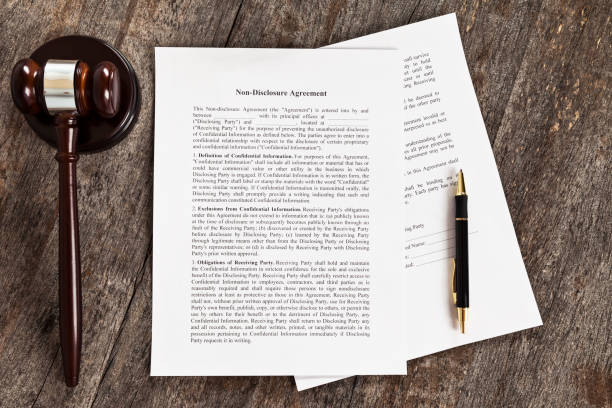What does ‘chose in action’ mean under common law jurisdiction? Imagine owning something you can’t hold in your hand, like the legal right to be paid back a loan or the ability to sue for a broken contract. This legal term for these intangible ownership rights. You aren’t taking physical possession over them, but you can take legal action to claim what’s owed or entitled to you. This article delves into the world of chose in action, explaining what they are, how they function, and their importance in various legal scenarios.
We’ll explore how these intangible rights are transferred, protected, and enforced within the legal system. Whether you’re a business owner, consumer, or curious individual, understanding choses in action is crucial for navigating related legal matters.
What Constitutes a Chose?
A chose represents either a tangible item or a legal entitlement. Choses are categorised into two types: choses in possession and choses in action. A chose in possession denotes an item over which the owner currently exercises control and enjoyment.
Conversely, a chose in action signifies a right held by an individual, entailing the potential for legal action to secure possession or enforce the right. Examples of choses in action encompass various scenarios such as:
- Debts owed
- Rights under contracts or wills; or
- Claims arising from civil wrongs.
Chose in Action: Bankruptcy
In cases of bankruptcy, a common scenario involves the sale of goods by one individual to another who subsequently declares bankruptcy. If payment for the goods remains outstanding at the time of bankruptcy, the right to collect payment becomes an asset under the jurisdiction of the trustee overseeing the bankrupt estate.
Assignment of a chose in action necessitates a written instrument signed by the assignor, along with written notice provided to the debtor. Courts have affirmed the trustee’s authority to transfer a chose in action, even to a discharged bankrupt. However, such transfer is not permissible for an undischarged bankrupt, as the asset would revert to the trustee by law.
Upon identifying a cause of action existing within a bankrupt estate, the Official Trustee may initiate proceedings to enforce rights, such as pursuing outstanding debts owed to the bankrupt individual. Prior to initiating legal action, the Trustee evaluates factors including the likelihood of success, associated costs, creditors’ willingness to contribute, and the defendant’s financial capacity.
Assignment of Cause of Action
In situations where a bankrupt individual lacks the means to pursue a claim, they may request the trustee to either pursue the action, sell the right to the bankrupt after discharge, or to a third party.
The trustee is obligated to consider the interests of both the bankrupt and the creditors when making such decisions. Potential defendants in the action have the opportunity to challenge the proposed assignment.
What Does the Bankruptcy Act Say?
Section 60 of the Bankruptcy Act mandates the trustee to elect either to abandon or continue ongoing legal proceedings upon the occurrence of bankruptcy. Certain actions, particularly those concerning personal injury or wrong, may be continued by the bankrupt individual. Such actions are exempt from the trustee’s recovery efforts.

Considerations and Funding Options
Factors influencing the decision to pursue legal action include the potential estate value and evidence of liability. Funding options for legal proceedings include advances from creditors, funding under the Bankruptcy Act, or utilising estate funds. Creditor input is solicited when estate funds are considered for legal action.
Assignment of Actions
When a recovery appears unfeasible within the estate’s administration, the Official Trustee may opt to assign a chose in action. This decision is made considering the estate’s best interests, even if it contrasts with the bankrupt individual’s viewpoint. Action assignments are formalised by a deed between the Official Trustee and the assignee, who usually covers legal costs.
The trustee’s solicitor reviews the deed to ensure compliance with legal requirements.
How Can Lawyers Help with Chose in Action Matters?
Lawyers can help with a variety of scenarios involving choses in action. Here are some common situations:
Debt Collection
If you are owed money and the debtor is refusing to pay, a lawyer can help you collect the debt through legal means. This might involve suing the debtor in court or negotiating a repayment plan. Lawyers can also advise you on the best course of action for collecting a debt, considering factors like the size of the debt, the likelihood of recovery, and the potential costs involved.
Contract Disputes
If you believe a party has breached a contract, a lawyer can help you enforce your personal rights under the contract. This might involve suing for damages, seeking specific performance (forcing the other party to fulfill their obligations), or terminating the contract. Lawyers can also help you interpret the terms of a contract and determine whether you have a valid claim for breach.
Bankruptcy Proceedings
When someone files for bankruptcy, their choses in action become part of the bankruptcy estate. A lawyer can represent you if you are a creditor with claims against the bankrupt’s estate. Lawyers can advise bankruptcy trustees on managing choses in action, like deciding to pursue collection or sell collection rights.
Inheritance Disputes
If you believe you have been wrongly excluded from a will or if the terms of a will are unclear, a lawyer can help you assert your rights as a beneficiary. This might involve challenging the validity of the will or negotiating a settlement with other beneficiaries. Lawyers can also help you understand your rights under a will and ensure you receive your rightful inheritance.
Intellectual Property
Choses in action can also encompass intellectual property rights, such as copyrights, patents, and trademarks. Lawyers can help you enforce your intellectual property rights if they are infringed upon.
Assignment of Choses in Action
Do you want to sell your right to collect a debt or enforce a contract (assign your chose in action)? A lawyer can help you draft the necessary legal documents and ensure the assignment of a legal chose is valid.

Defending Against Claims
If sued over legal and equitable choses in action, a lawyer can represent and defend your rights in court.
JB Solicitors can help you with any bankruptcy or estate matters you may have difficulty with. If you also need court representation, our lawyers can help you defend your flights and interests.
Contact us today for more information about chose in action matters.
